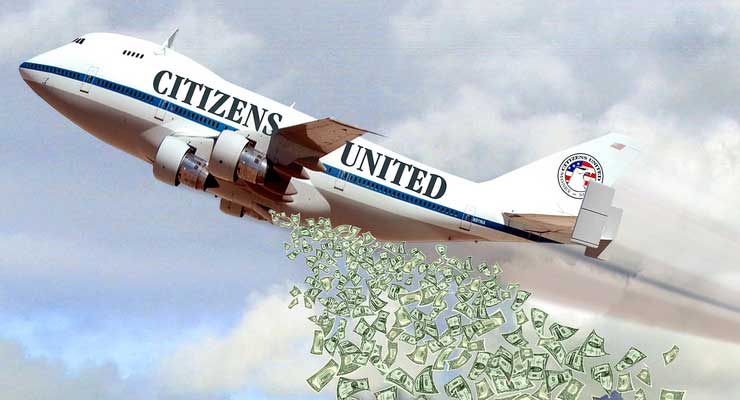
The airline lobby has paid dividends for the industry but long term viability is being put at risk
From Science Daily:
Government lobbying and political connections may add lift to the air transportation industry’s profitability, but they could also cause a crash in talented transportation administrators, according to a Penn State Harrisburg researcher.
In a study of 46 companies in the airline transportation industry over the past 15 years, Richard S. Brown, assistant professor of management, found after controlling for other factors, that political lobbying was related to a company’s profitability.
“As a society, I think we assume this is how the world works,” said Brown. “Corporations use their lobbying efforts to gain political favor and those political favors at some point flow to a benefit, and, in this case, I look at that benefit as profitability.”
According to Brown, in one model, when a company increases its lobbying efforts by 1 percent, the company’s profits — earnings before interest and taxes — increase by about $195,000.
Companies use political lobbying in several ways, added Brown who released his finding in Journal of Air Transport Management. They use lobbyists to push for legislation that will favor their companies and to argue against regulations they believe will hamper business.
Adding former regulators and other government officials to the companies’ payrolls is another common practice, he said.
“Companies may try to hire high-level people from government bodies — usually regulators, but it could also be elected officials,” said Brown. “They do this to get inside information on the regulatory process. Not criminal inside information, but extra information on things like how the processes work inside the regulatory body, or which regulatory personnel are easiest to work with.”
While lobbying efforts may pay dividends for the entire industry, political connections can often lead to competitive advantages for individual companies.
“As an example, let’s say I want to get non-criminal inside information on how to deal with a situation. If I get that information before my competition, that’s information that can help my company, and only my company,” Brown said. “And that is accomplished through political hiring.”
For the ordinary citizen, however, the exodus of losing talented employees from government agencies to lobbying organizations and other private firms may hurt the effectiveness of those agencies and their regulation efforts, according to Brown.
He suggests that understanding the lobbying process can also help raise citizens’ awareness of the democratic process.
“When we see lawmakers introduce a bill, I think it’s important to ask yourself, ‘Why was that bill introduced?'” said Brown. “A lot of times, the reason is that he or she is being pushed by some kind of interest. This isn’t meant to be cynical; but it’s just part of the democratic process.”
Brown used data on corporate political activity of public companies from several databases, including the U.S Department of Labor, COMPUTSTAT and the Center for Responsive Politics. He created several models to control for the effects that other economic conditions might have on a company’s profitability.
The 46 air transportation firms in the study cover three different markets, including air transportation, air courier services and airport services.
To study political connectedness, Brown used data from the Center of Responsible Politics on individuals hired and retained by the 46 air transportation firms.
Future research may include analyzing the connection between political lobbying and company performance in other industries, said Brown.
Richard S. Brown. Lobbying, political connectedness and financial performance in the air transportation industry. Journal of Air Transport Management, 2016; 54: 61 DOI: 10.1016/j.jairtraman.2016.03.009
Leave a Reply